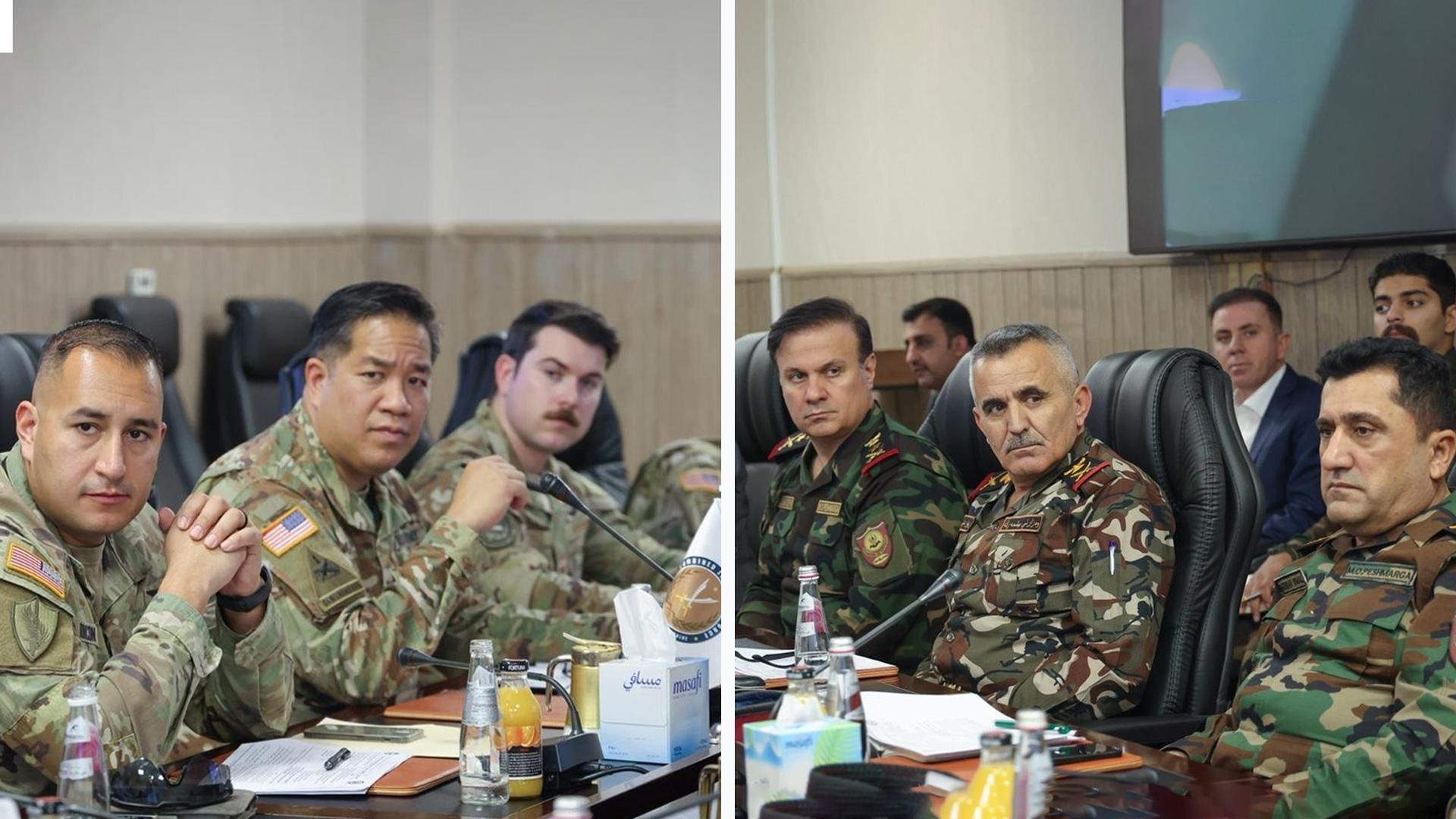Peshmerga Ministry and U.S. Security Office Review Logistics and Reform Progress
Peshmerga Ministry and US Office of Security Cooperation reviewed logistical support and reform progress in a high-level meeting. Discussions focused on coalition aid delivery mechanisms and ongoing military restructuring efforts.

ERBIL (Kurdistan24) - In a meeting underscoring the deepening coordination between Erbil and Washington, senior officials from the Ministry of Peshmerga and the U.S. Office of Security Cooperation reaffirmed their commitment to ongoing reforms and logistical support, as the Kurdistan Region advances one of its most significant military restructuring efforts in years.
The Ministry of Peshmerga announced that high-ranking officials convened with representatives of the U.S. Office of Security Cooperation on Tuesday, to review recent security developments, evaluate the delivery mechanisms of coalition logistical support, and assess progress within the ministry’s continuing reform program.
The meeting, held at the ministry headquarters and chaired by Chief of Staff Maj. Gen. Isa Ozir alongside Secretary-General Lt. Gen. Bakhtyar Mohammed Sadiq and a number of senior officers, brought together the Peshmerga leadership with Col. Dick Pylowik, head of the U.S. Office of Security Cooperation at the U.S. Consulate General in Erbil.
According to the ministry’s statement, discussions focused on the latest updates within the security dossier and included a detailed review of the mechanisms used to channel coalition logistical support to Peshmerga forces. The objective, as emphasized during the session, is to ensure that the assistance process continues to serve the operational capabilities of the Kurdistan Region to the highest standard.
Another major component of the meeting centered on reform steps and force reorganization. Participants highlighted the importance of sustained coordination between ministry teams and the U.S. liaison office to implement the plans aimed at strengthening the military infrastructure of the Kurdistan Region. The Peshmerga command reaffirmed that these reforms are essential for enhancing readiness, efficiency, and unified command structures.
At the conclusion of the meeting, senior ministry officials praised the crucial role played by U.S. military teams and coalition advisers in supporting the reform process and facilitating coordination. They vowed to deepen cooperation in the coming phase to safeguard the region’s security and stability.
The discussions come at a pivotal moment in the Kurdistan Region’s sweeping Peshmerga reform campaign. As part of the ninth cabinet’s restructuring effort, the Kurdistan Region has officially reactivated Unit 80 under a new formation titled “Area Command 1,” placing the force directly under the Ministry of Peshmerga.
A senior source from the ministry confirmed to Kurdistan24 that the Kurdistan Region Presidency issued the decree to integrate Unit 80 into the ministry’s formal command structure. The new Area Command 1 will include six unified Peshmerga divisions, with the implementation phase scheduled to begin within days.
The move represents a major milestone in the ongoing unification and reform program, which aims to consolidate all Peshmerga forces under a single institutional command. Led by Prime Minister Masrour Barzani, the initiative seeks to eliminate long-standing administrative divisions, unify operational procedures, and build a cohesive and standardized defense force.
Since 2023, the unification process has undergone extensive restructuring to merge multiple brigades into fully organized divisions, strengthening command and control and improving overall military effectiveness. The upcoming coordination meeting with a U.S. military delegation—planned specifically to discuss logistical support and synchronization mechanisms—reflects Washington’s central role in supporting this reform framework.